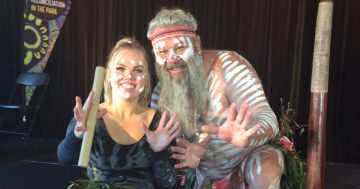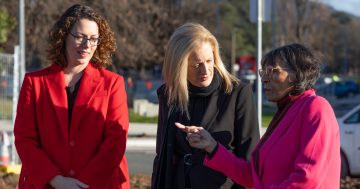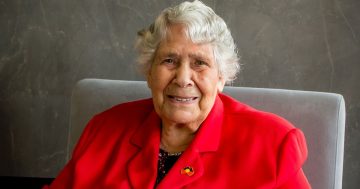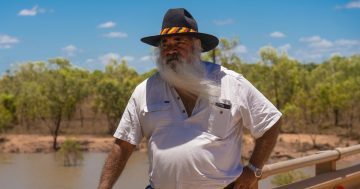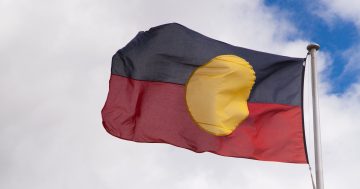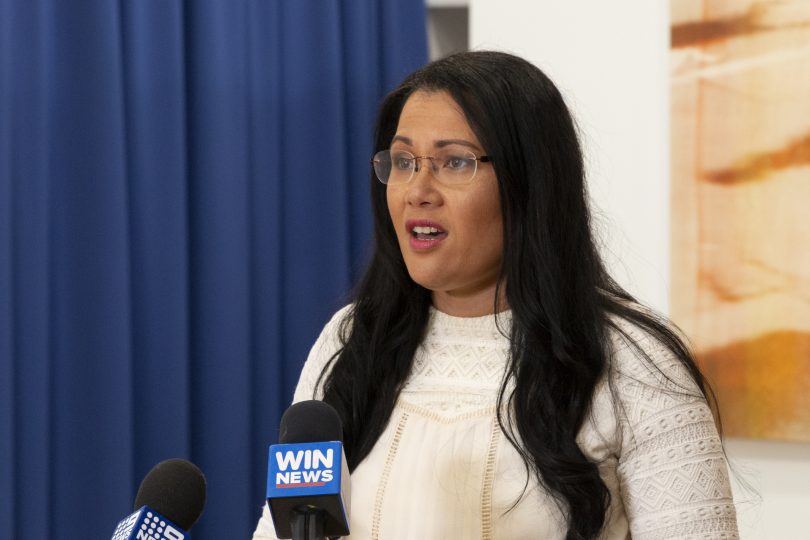
Canberra Liberals MLA for Ginninderra Elizabeth Kikkert. Photo: Dominic Giannini.
I recently had the privilege of sitting down for nearly an hour to listen to a senior Aboriginal leader. I asked him to explain to me what reconciliation means to him personally.
His first response: telling the truth.
He then shared with me difficult historical accounts that are important to him. Nothing can get better until we know the facts, he asserted.
And while it is essential to know what happened in the past, a commitment to truth-telling means that it is equally important to know what may be happening in our own time and place.
His second response: genuinely listening. As he explained, this means finding out what Aboriginal and Torres Strait Islander people would do if they had their way – and then helping to make it happen.
For far too long, decisions have been made on behalf of Indigenous Australians instead of by them or with them. But when it comes to matters that impact their families and their communities, no one knows better what they need.
A genuine commitment to self-determination requires action – especially when community desires conflict with other agendas.
I accept these principles of reconciliation as explained by my esteemed Aboriginal friend.
Accordingly, I fully support the unanimous request by community leaders that a formal board of inquiry investigate and respond to “the over-representation of Aboriginal and Torres Strait Islander people in the ACT in touch with the criminal justice system or incarcerated”.
Indigenous Australians in Canberra have every right to ask that the facts, whatever they are, be investigated and reported. Their voices should be heard, and their request should be honoured.
Going forward, the principles of reconciliation need to shape all government decision-making. This is essential for the wellbeing of the Aboriginal and Torres Strait Islander community, which in several important areas, experiences more disadvantage in the ACT than in any other jurisdiction.
For example, while Indigenous Australians are proportionally the most incarcerated people on the planet, those living in Canberra are nearly 20 times more likely to be locked up than non-Indigenous people – the highest ratio in the nation.
In their essence, the principles of reconciliation should characterise all human interactions. Embedding these principles will therefore benefit all of us.
An inspiring example of how this can occur comes out of Aotearoa New Zealand. Like Aboriginal and Torres Strait Islander children in Canberra, Maori children had long been overrepresented in that nation’s child protection system.
Reports throughout the 1970s and 1980s highlighted issues of institutional racism, and one in 1986 recommended a “substantial ideological change” that would “cater to Maori needs”.
The government’s first response was to propose strengthening child protection teams – essentially doubling down on what it was already doing.
A new minister, however, insisted on genuine reform and in 1989 the Family Group Conference became law. This legal entitlement means that families are empowered and supported to solve child welfare concerns themselves before the government can seek a court order authorising child removal.
As a result, the number of children in the care and protection system was cut in half and Aotearoa New Zealand now has one of the lowest rates of children in care in the developed world.
As an act of reconciliation, this reform was intended to “cater to Maori needs,” and it has done so. At the same time, all kinds of families have benefitted. Family Group Conferencing has even been described as “New Zealand’s gift to the world”.
It is for these reasons that Aboriginal elders in the ACT have been asking to have a similar legal entitlement in this territory – and why I have been committed for several years to seeing this reform happen. First and foremost, such reform will strengthen vulnerable First Nations families and in doing so, it will strengthen all vulnerable families.
And because very few of us can directly impact government decisions, I also invite all Canberrans to thoughtfully consider ways that they can embed the principles of reconciliation in their individual lives.
Part of this is being informed by knowing the facts about our own communities, both past and present. We also need to care enough about our Aboriginal and Torres Strait Islander neighbours to act whenever an opportunity arises.
This may include calling out blatant racism or gently correcting false stereotypes. It may require no longer tolerating the kinds of statistics we have grown accustomed to hearing about in Canberra.
It will certainly involve being better people – at its core, that is what reconciliation calls on us to be.
Elizabeth Kikkert is the ACT Shadow Minister for Aboriginal and Torres Strait Islander Affairs and a Liberal Member for Ginninderra













